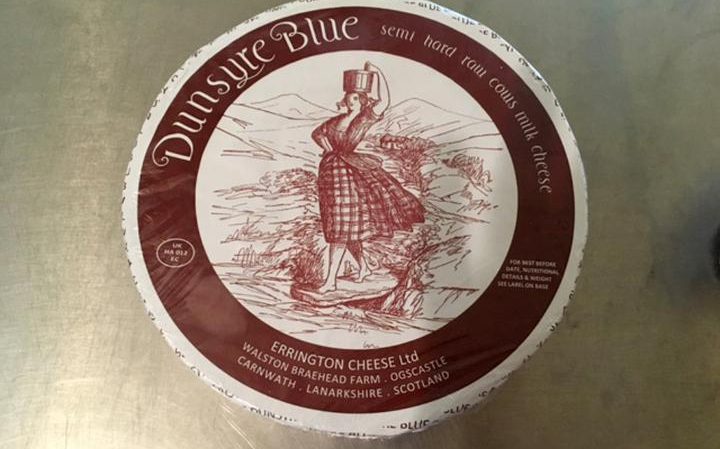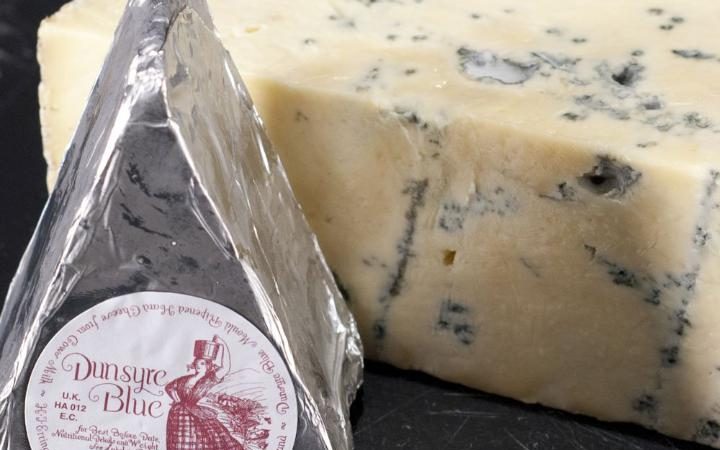

Scotland's food agency has called for a further batch of cheese to be withdrawn from sale because it may contain E. coli.
Food Standards Scotland (FSS) said a sample from a batch of Lanark White, made by Lanarkshire-based Errington Cheese, has tested positive for E. coli O157.
A different brand of cheese made by the same firm had been linked to an E. coli outbreak in which a three-year-old girl died.
In July, two batches of Dunsyre Blue were voluntarily recalled, and earlier this week a third was taken off the market as a "precautionary" measure.
FSS has issued a Food Alerts for Action (FAFA) calling for batch G14 of Lanark White to be immediately recalled from sale. It said the products would have been purchased between August 22 and September 10.
A statement from FSS said: "A sample from a batch of Lanark White submitted for testing by South Lanarkshire Council has tested positive for E. coli O157.
"Although this organism may not carry shiga toxins, it is associated with human disease in the UK, so this cheese is a potential risk to health."
Lanark White, a white cheese made from unpasteurised sheep's milk, is known to be supplied by Errington Cheese to wholesalers, who in turn supply to retail and catering establishments.
The product is mainly provided to specialist cheese shops, delicatessens, hotels and restaurants, FSS said.
The organisation said Errington Cheese had not voluntarily withdrawn the product, so it was initiating the withdrawal of batch G14 from the marketplace.
The statement continued: "FSS and South Lanarkshire Council's investigations into food safety related to unpasteurised cheese produced by Errington Cheese Ltd are ongoing.
"Actions will continue to be determined by what is necessary to protect public health and the interests of consumers."
Errington Cheese said it was conducting its own tests.
A statement published on the firm's website said: "We take food safety as our priority and when we were told of the presumptive E.coli O157 result we immediately consulted experts in dairy microbiology.
"The experts told us they were confused and concerned by the testing methodology adopted by the laboratory. We have given careful consideration to this and to the fact that the cheese has been on the market for three weeks now with absolutely no reported incidence of illness.
"We have arranged for the sample of the same cheese tested by the authorities to be tested and the results will be ready on Monday when we will review the situation and post an update."
Meanwhile, an investigation by the Crown Office and Procurator Fiscal Service (COPFS) has begun into the death of the three-year-old girl in Dunbartonshire on September 2.
The child was among 20 confirmed cases of infection with E.coli O157, with 11 of those requiring hospital treatment.
Authorities looking into the outbreak found those affected had consumed Dunsyre Blue before they became unwell. All confirmed cases became unwell before the end of July.
During that month, two Dunsyre Blue batches were voluntarily recalled, while on Thursday, Errington Cheese also instigated the "precautionary recall" of third batch of the product.
The decision was taken because it "may contain shiga toxin-producing E.coli (STEC), a type of bacteria that is potentially harmful to health," FSS said.
The cheeses affected are Dunsyre Blue with the relevant batch number and best-before dates between September 18 and October 18 this year.
Dunsyre Baby cheese, with best-before dates between September 21 and October 11 2016, is also subject to the recall, FSS said.
E. coli O157 infection can occur after eating food or drinking water that may be contaminated with the faeces from infected animals, or from contact with animals or their environments.
http://www.telegraph.co.uk/news/201...r-new-batch-of-cheese-to-be-withdrawn-over-e/



